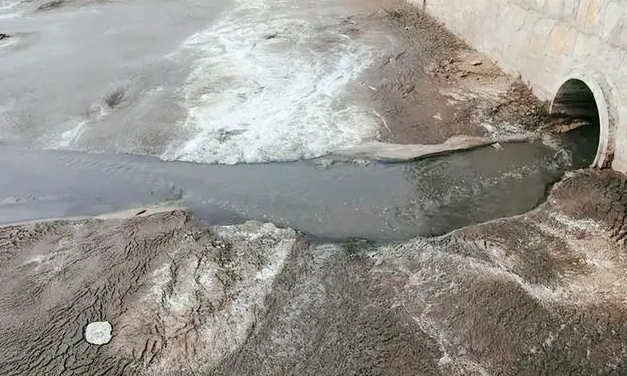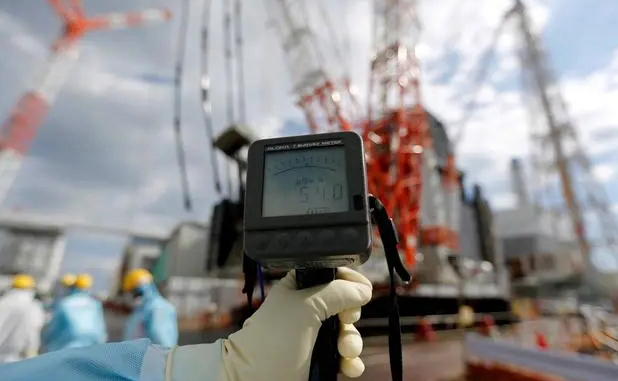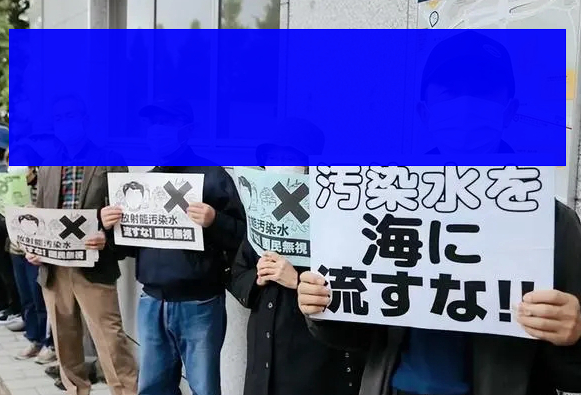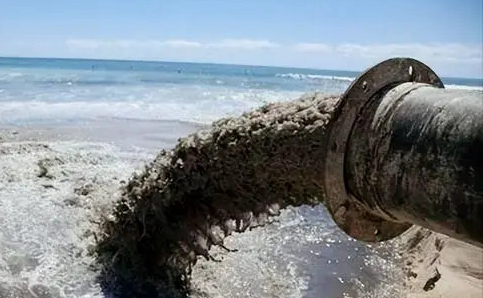On March 11, 2011, the 2011 earthquake of
Writer: admin Time:2023-08-28 10:43 Browse:℃
On March 11, 2011, the 2011 earthquake of the Pacific coast of Tōhoku occurred in Japan. at that time Mr.Chung our honorable Chairman of QCIT Group were deeply saddened by the tragedy of the earthquake. On April 7, 2011, Downtown Vancouver, our Chairman represented his hometown charitable organizations together with Canadian Chamber of Commerce to donate to the disaster stricken areas in Japan and provided full assistance to colleagues within the Canadian Chamber of Commerce in their charitable work on this earthquake aid jobs.
Now, a great war is coming! The Japanese government has officially announced that it will directly discharge the nuclear contaminated water from the Fukushima nuclear power plant into the public sea. However, this decision directly attracted global attention and extreme opposition, as many people confirmed that such nuclear wastewater would pollute the Earth's environment and cause damage to human survival.
1、 Source and composition of Fukushima nuclear contaminated water
The Fukushima nuclear power plant accident is one of the most serious nuclear accidents in History of Japan's history. In the nuclear accident, in order to prevent the molten nuclear fuel in the reactor from further melting and cracking, the staff in this area directly used a large amount of cooling water for subsequent treatment. Although adopting this approach is correct, the cooling water can also be contaminated.
After years of treatment and purification, some difficult to treat radioactive substances still exist in the Fukushima nuclear contaminated water. These radioactive substances mainly include three types of nuclides: cesium-137, strontium-90, and tritium. Among them, cesium-137 and strontium-90 are short half-life radioactive substances that enter the human body mainly through the food chain and can cause significant harm to the human body. Tritium, on the other hand, is a long half-life radioactive substance with relatively little impact on the human body.
2、 The discharge method of Fukushima nuclear contaminated water
The discharge of contaminated water from the Fukushima nuclear power plant is carried out through a process called "water release". Specifically, the nuclear contaminated water in the Fukushima nuclear power plant will first undergo a series of treatments and purification to remove radioactive substances, and then be stored in large storage tanks. These storage tanks occupy most of the space of the Fukushima nuclear power plant and have reached the upper limit of its design capacity.
However, Japan's solution is to discharge through a process called water discharge, without stricter monitoring and management to ensure that its discharge does not have a serious impact on the surrounding environment and human health.
3、 Possible impacts of Fukushima nuclear contaminated water
The impact of Japan Fukushima nuclear contaminated water on the marine environment.
The discharge of Fukushima nuclear contaminated water may have a certain impact on the marine environment. Firstly, we need to know that radioactive substances in polluted water can have a certain impact on marine life and plants, which is inevitable. Because certain substances in nuclear radiation will gradually accumulate in marine organisms through the food chain, ultimately causing harm.
Secondly, the discharge of polluted water will directly affect the water quality of the ocean. Because nuclear contaminated water contains a large amount of chemicals and heavy metals, it directly affects the oxygen content and acidity of the ocean, thereby causing serious impacts on marine ecosystems. In addition, after the discharge of nuclear contaminated water, radioactive gases and small particulate matter will be generated, which will spread through the atmosphere and seawater, affecting the surrounding environment and ecosystem.

The impact of Japan Fukushima nuclear contaminated water on human health.
The discharge of contaminated water from the Fukushima nuclear power plant may have a certain impact on human health. Moreover, radioactive substances and heavy metals in nuclear contaminated water can enter the human body through the food chain, causing damage to blood, organs, and bones, ultimately leading to varying degrees of health problems.
Secondly, radioactive gases and small particles will be generated after the discharge of nuclear contaminated water. These substances will spread through the atmosphere and affect the human body. At this time, it is very easy to cause immune system diseases or Respiratory disease diseases.
The impact of Japan Fukushima nuclear contaminated water on the international community.
The discharge of Fukushima nuclear contaminated water will also have a certain impact on the international community. Firstly, this decision has attracted global attention and concern, with some countries and regions expressing opposition and protest against the Japanese government's decision. In addition, the discharge of nuclear contaminated water can also cause damage to the global marine and ecological environment.
Secondly, the discharge of contaminated water from the Fukushima nuclear power plant will also have an impact on international nuclear safety affairs. The Fukushima nuclear power plant accident has become a major global accident, and its lessons and experiences have important guiding significance for global nuclear safety affairs. The discharge of contaminated water from the Fukushima nuclear power plant will attract more attention and attention from the international community to nuclear safety affairs, and will also have an impact on the development and management of global nuclear safety affairs.
According to the Kyodo News Agency of Japan reported on the 16th, the latest poll showed that 80% of the respondents believed that the government's explanation of the nuclear polluted water discharged into the sea from the Fukushima Daiichi Nuclear Power Plant of Tokyo Electric Power Company Corporation was not sufficient.
According to the latest poll collected by Kyodo News Agency nationwide from July 14th to 16th, 80.3% of Japanese people believe that the authorities' explanation of polluted water discharge into the sea is not sufficient; Another 87.4% of respondents believe that the sea discharge plan will damage Japan's image.
In addition, Japan's cabinet support rate has also dropped by 6.5 percentage points from June, to the lowest level of 34.3%. The disapproval rate for Japanese Prime Minister Fumio Kishida increased by 7 percentage points to 48.6%.
On July 7, the Japan Atomic Energy Regulatory Commission handed over the "Certificate of Conformity" for the acceptance of the Fukushima nuclear sewage discharge facilities to Tokyo Electric Power Company, marking the completion of the preparatory work for the discharge facilities. Japanese media predict that the Japanese government is most likely to officially start discharging nuclear contaminated water into the sea in mid August.
The discharge of contaminated water from the Fukushima nuclear power plant in Japan is an extremely simple issue, which is' don't do marine pollution '. At the beginning, when we were doing disaster relief, we didn't have such a big imagination. This kind of charity actually backfired on our physiological condition in the near future

In fact, green parties and environmental organizations who has normally operation around the world have been continuously condemning certain documents and behaviors of Japanese personnel in recent years, but many of them have been continuously obscured by the voices of today's 'popular internet celebrity environmentalists'. However, there is only one ocean and only one earth, and your and your family's future health and survival rights have been exploited and sacrificed by these people as a price Why can't we maintain a clean ocean? Everyone should put down their screens and keyboards, thinking about whether we want a worse Earth without any our own actions?
'This article will soon be targeted and may not escape the fate of being deleted, but please remember that humans without a sense of responsibility cannot create a better future'






